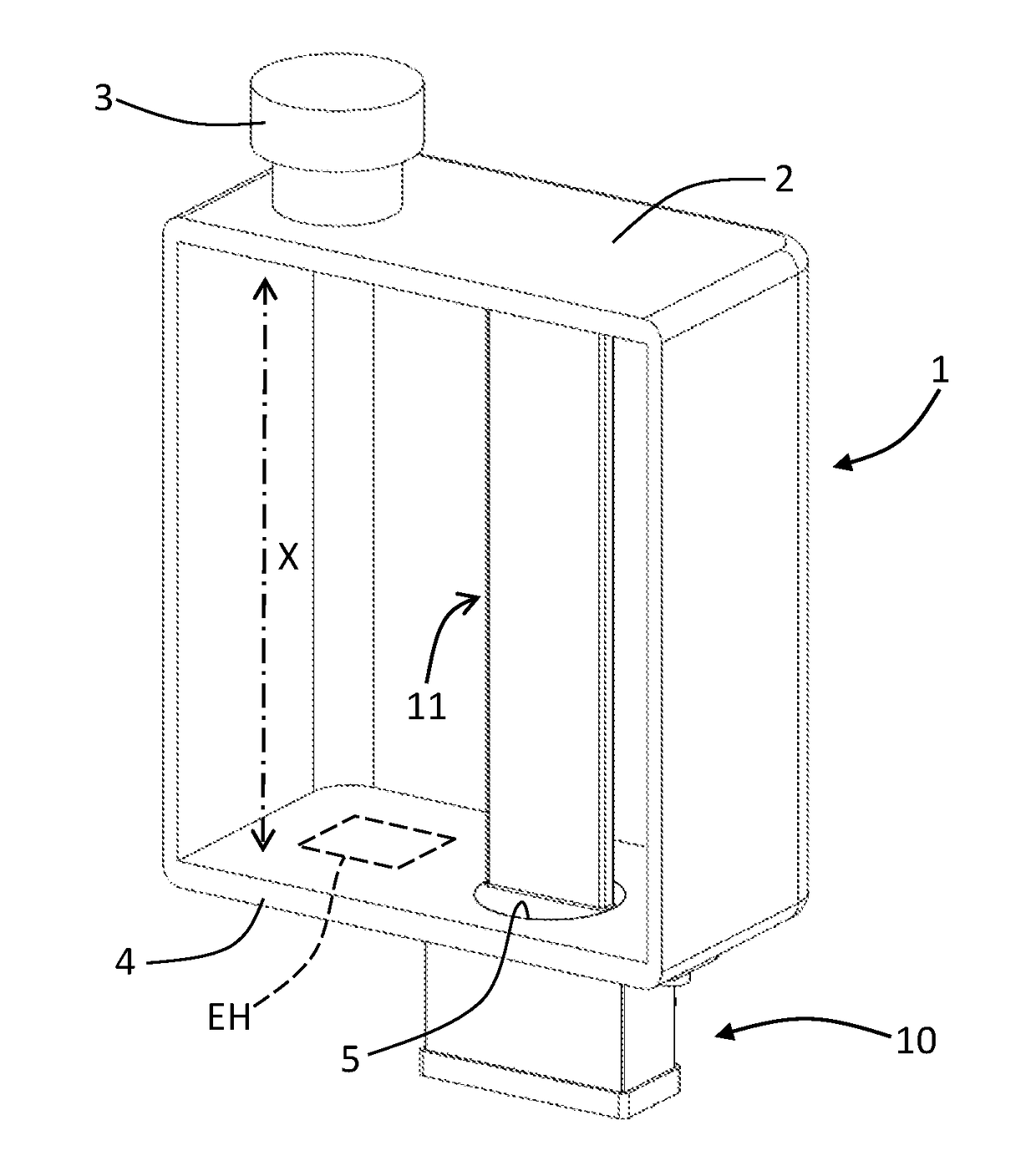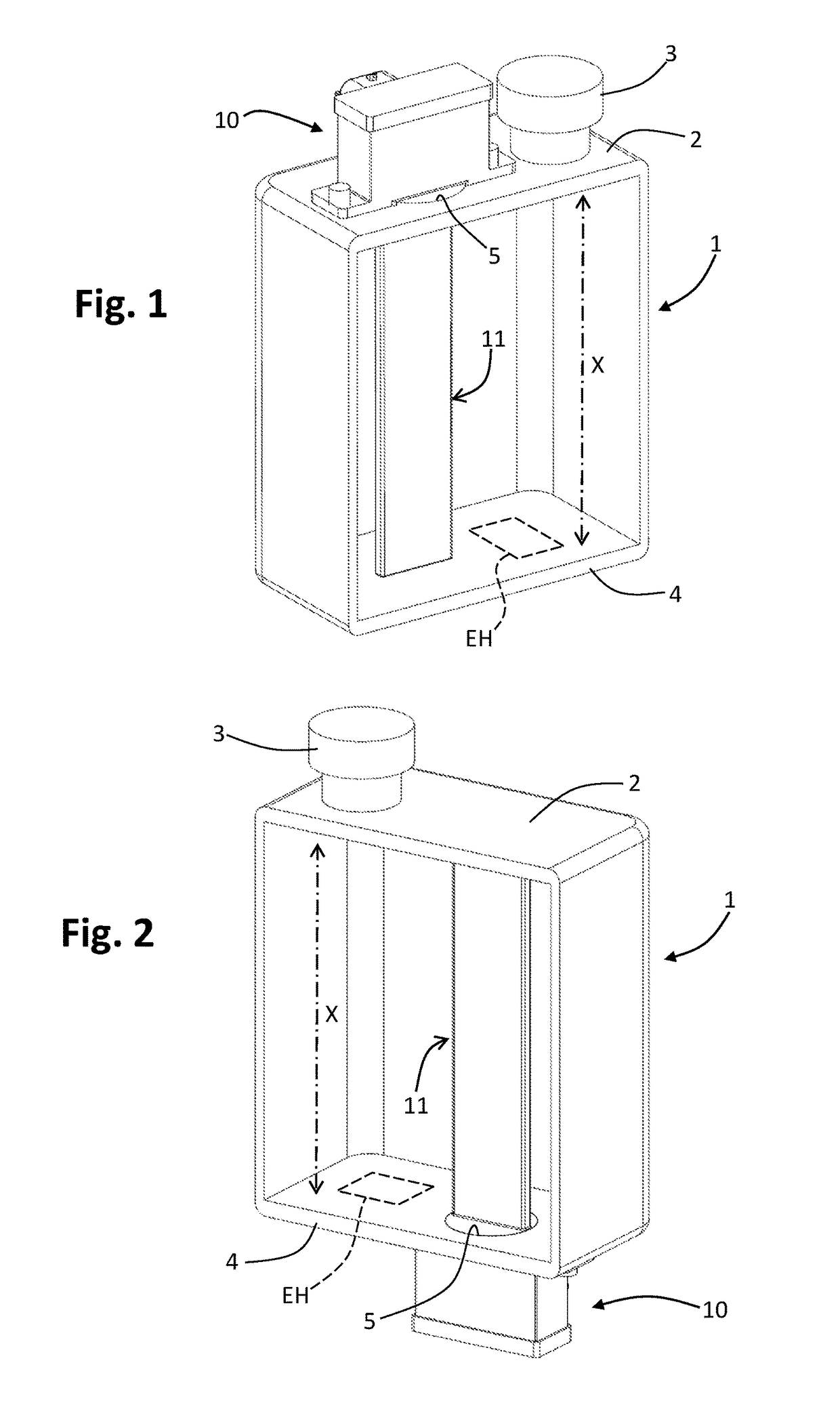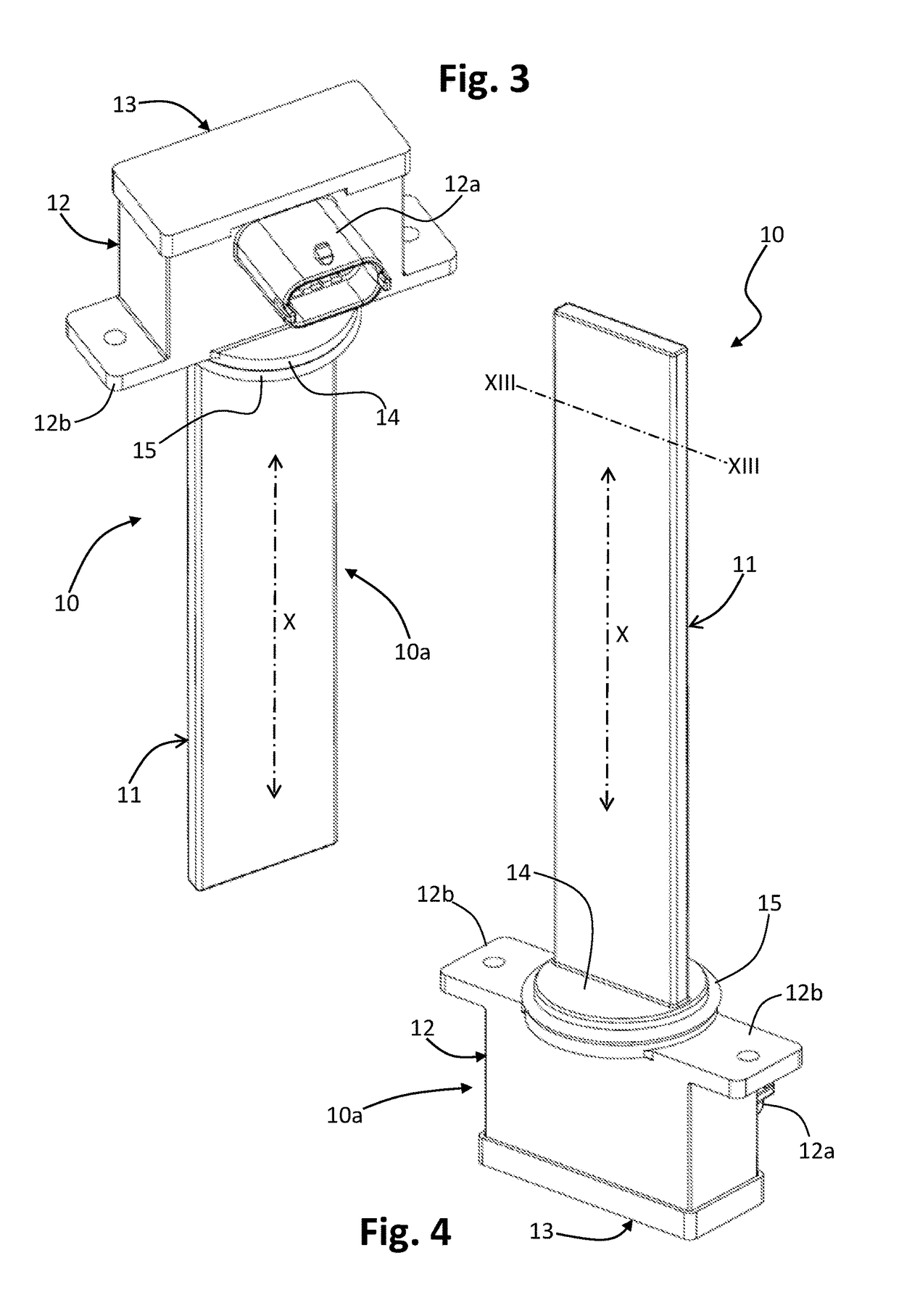Sensor for detecting the level of a medium
a technology of a sensor and a level, applied in the direction of electronic switching, pulse technique, instruments, etc., can solve the problems of complex general structure of sensors, aging and early wear of sensors, and achieve the effects of simple and inexpensive production, high flexibility of use and construction
- Summary
- Abstract
- Description
- Claims
- Application Information
AI Technical Summary
Benefits of technology
Problems solved by technology
Method used
Image
Examples
Embodiment Construction
[0041]Reference to “an embodiment” or “one embodiment” in the framework of the present description is meant to indicate that a particular configuration, structure, or characteristic described in relation to the embodiment is comprised in at least one embodiment. Hence, phrases such as “in one embodiment”, “in one embodiment”, and the like that may be present in different points of this description do not necessarily refer to one and the same embodiment, but may instead refer to different embodiments. Moreover, particular conformations, structures, or characteristics defined in the course of the present description may be combined in any adequate way in one or more embodiments, even different from the ones shown. The numeric and spatial references (such as “upper / top”, “lower / bottom”, “up”, “down”, “front”, “back”, “vertical”, etc.) used herein are merely provided for convenience and hence do not define the sphere of protection or the scope of the embodiments. In the figures, the sam...
PUM
 Login to View More
Login to View More Abstract
Description
Claims
Application Information
 Login to View More
Login to View More - R&D
- Intellectual Property
- Life Sciences
- Materials
- Tech Scout
- Unparalleled Data Quality
- Higher Quality Content
- 60% Fewer Hallucinations
Browse by: Latest US Patents, China's latest patents, Technical Efficacy Thesaurus, Application Domain, Technology Topic, Popular Technical Reports.
© 2025 PatSnap. All rights reserved.Legal|Privacy policy|Modern Slavery Act Transparency Statement|Sitemap|About US| Contact US: help@patsnap.com



